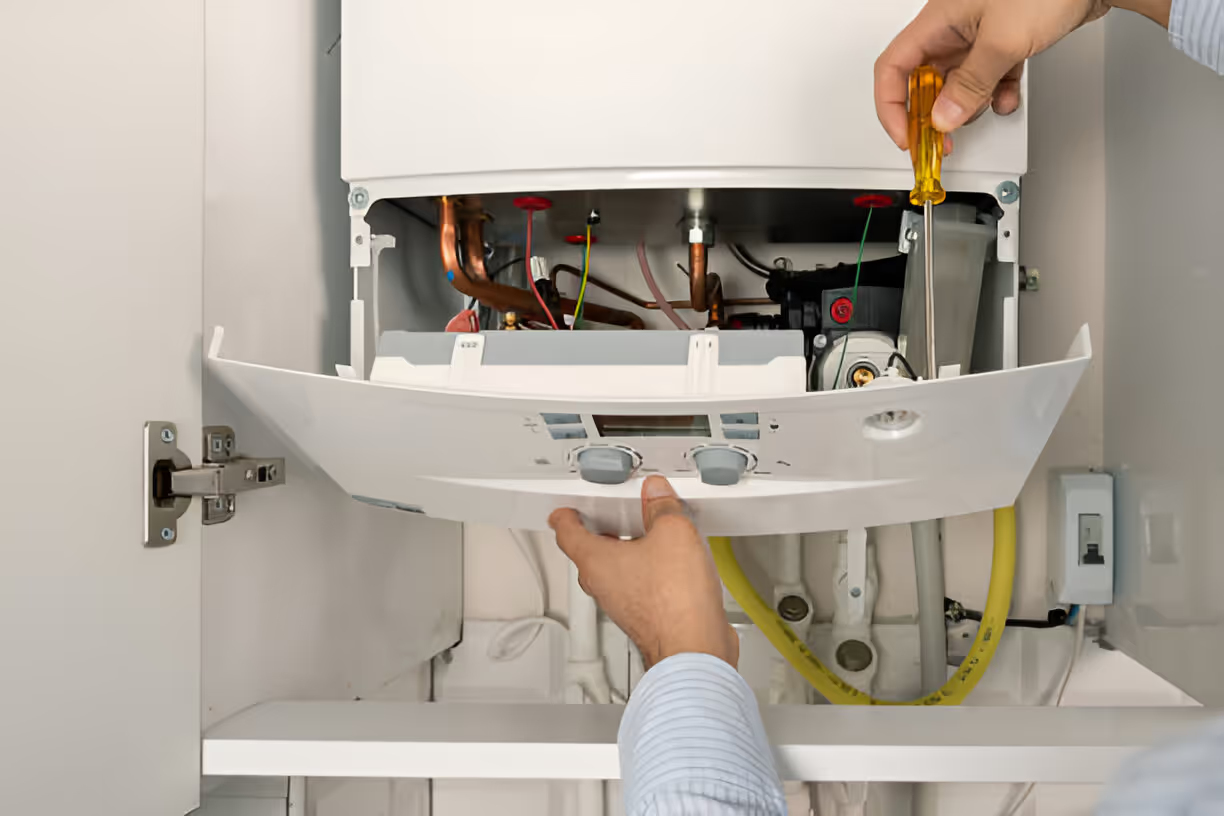Boiler Maintenance in Winslow Township, NJ
Boiler Maintenance in Winslow Township, NJ
Keeping your boiler properly maintained is one of the most effective ways to avoid mid-winter breakdowns, reduce energy bills, and protect your home from safety risks like carbon monoxide. In Winslow Township, NJ, where cold snaps, freeze-thaw cycles, and older housing stock are common, routine boiler maintenance is especially important to ensure reliable heat through the winter months and to extend the life of your system.

Why routine boiler maintenance matters in Winslow Township
- Winters in South Jersey bring sustained cold and occasional severe temperature drops. A neglected boiler is more likely to fail when you need it most.
- Many homes in the area have mixed fuel systems (natural gas, propane, or oil) and older hydronic systems. Age and fuel type change what needs attention during service.
- Routine care reduces the risk of carbon monoxide exposure by ensuring safe combustion and clear venting.
- Regular maintenance keeps boilers running efficiently, which saves on heating costs and can help when applying for local utility rebates or energy incentives.
Common boiler maintenance issues in Winslow Township
- Reduced heat or uneven heating due to air trapped in radiators or blocked circulator pumps.
- Yellow or sooty burner flames from poor combustion or clogged burners.
- Corroded heat exchanger or flue problems from condensation and moisture exposure.
- Clogged condensate lines on high-efficiency boilers, especially after temperature swings.
- Worn circulator pumps, leaking valves, or failing expansion tanks.
- Dirty fuel filters or oil nozzle problems on oil-fired boilers.
- Faulty safety controls or expired pressure relief valves.
What a routine boiler maintenance visit includes
A comprehensive annual inspection for boilers in Winslow Township typically covers all of the following tasks, explained in plain language so you know what to expect:
- Visual inspection of the boiler, piping, and surrounding area for leaks, rust, or signs of wear.
- Cleaning of burners and heat exchanger surfaces to restore proper combustion and heat transfer.
- Inspection and cleaning of flue, venting, and chimney to ensure safe exhaust of combustion gases.
- Combustion and efficiency testing to measure how well the boiler is burning fuel and converting it to heat.
- Safety checks: carbon monoxide test, verification of pressure and temperature controls, and testing of limit switches and low water cutoffs.
- Inspection and replacement of filters, gaskets, seals, belts, and any worn components that affect performance.
- Checking circulator pumps, zone valves, expansion tanks, and the system pressure or steam level for proper operation.
- Flushing or bleeding of zones or radiators to remove trapped air and restore even heat distribution.
- For high-efficiency condensing boilers: cleaning condensate traps and verifying condensate drainage is clear.
Diagnostic and testing steps explained
Technicians use simple, proven diagnostic steps during a maintenance visit:
- Visual and tactile checks first to find leaks, corrosion, or loose connections.
- Combustion analysis measures flame quality and exhaust gases to detect incomplete combustion or leaking heat exchangers.
- Pressure and temperature readings check that the boiler operates within safe and efficient limits.
- Electrical and control checks confirm that the thermostat, relays, and safety devices respond correctly.
- Flow checks ensure circulator pumps and zone valves are moving water properly; if not, the technician isolates the issue and recommends repair or replacement.
These tests not only identify immediate failures but also uncover developing problems so they can be fixed before causing a breakdown.
Typical repairs and component replacements
During or after inspection, some common service items may be recommended:
- Burner adjustment or replacement for sooting or poor ignition.
- Replacement of seals, gaskets, and filters to stop leaks and improve efficiency.
- Pump or motor replacement for failed circulators.
- Pressure relief valve or expansion tank replacement to correct pressure problems.
- Thermostat recalibration or replacing faulty controls for better comfort and efficiency.
- Heat exchanger repair or replacement when cracks or severe corrosion are found (this is critical for safety).
Technicians prioritize safety items and clearly explain which repairs are urgent and which can be scheduled.
Recommended maintenance schedule and plans
- Annual inspection: minimum for most hot water (hydronic) and steam boilers; schedule before the heating season (September to October) to catch issues early.
- Semi-annual or seasonal checks: recommended for older boilers, commercial systems, or homes with high heating demand.
- Maintenance plans: recurring service plans typically include scheduled inspections, priority service and diagnostic tracking, replacement discounts, and reminder notifications. Plans help keep maintenance consistent and often yield the best long-term value.
Expected benefits of regular boiler maintenance
- Fewer unexpected breakdowns during cold weather, reducing emergency repairs and inconvenience.
- Improved fuel efficiency and lower heating bills through cleaner combustion and optimized controls.
- Longer equipment life by reducing wear on moving parts and preventing corrosion.
- Safer operation with verified venting and functional carbon monoxide protection.
- Better comfort with more even heat distribution and reliable temperature control.
Practical homeowner tips for Winslow Township
- Schedule your annual service in early fall to avoid busy-season delays and to verify performance before temperatures drop.
- Keep the boiler area clear of storage and combustible materials to ensure safe service and proper ventilation.
- Learn where your emergency shutoff and pressure relief valve are located so you can respond quickly if a problem occurs.
- Monitor for signs between services: unusual noises, visible leaks, yellow flames, or unexplained spikes in heating costs.
- If you have a high-efficiency condensing boiler, check condensate drains periodically after storms and freezes; technicians can winterize or protect lines as needed.
Regular, licensed boiler maintenance is the most reliable strategy for safe, efficient heating in Winslow Township homes. A thorough annual inspection, combined with timely repairs and a predictable maintenance schedule, keeps your system running efficiently and protects your household through the coldest months.
Customer Testimonials
Our customers consistently praise our exceptional service and quality products, highlighting their satisfaction and loyalty.


